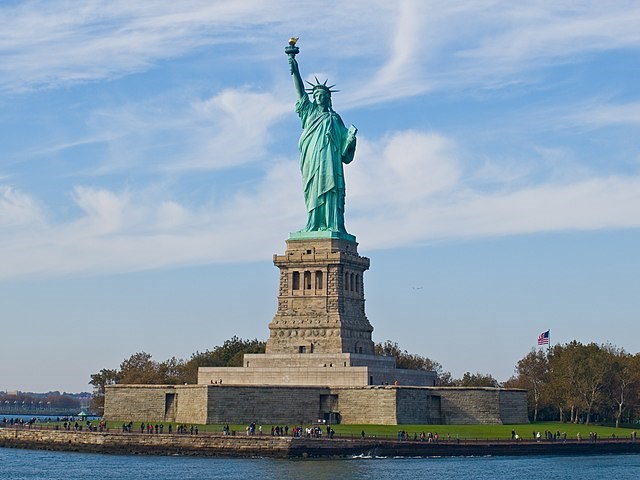In the wake of the city’s ongoing migrant crisis, much has been said about NYC's status as a “sanctuary city.” It’s a term most of us are familiar with, but not entirely sure of what it means.
The term “sanctuary city” itself does not have a singular or official definition. It instead refers to sets of laws that limit a city, state, or counties’ level of cooperation with Immigration and Custom Enforcement (ICE), with the goal of helping non-citizens live with less fear of deportation.
NYC’s sanctuary policies date back to the 80s and have been upheld by each mayoral administration since. Mayor Adams made some of his strongest statements yet on the city's sanctuary policies on Tuesday, noting how he would like to make changes to the current policy.
"The overwhelming number of migrants and asylum seekers that are here, they want to work," said Adams. "But those small numbers that are committing crimes, we need to modify the sanctuary city law that if you commit a felony, a violent act, we should be able to turn you over to ICE and have you deported.”
Cynthia Marlene Galaz, Director of Immigrant Rights Policy at the New York Immigrant Coalition, a policy and advocacy organization that advocates for immigrants, spoke with BK Reader to discuss some of the most common misconceptions of sanctuary cities. Responses have been abridged for clarity.
What does it mean to be a sanctuary city?
Sanctuary cities also mean sanctuary states or sanctuary counties. It’s really any type of jurisdiction that has passed laws or has an executive order that prohibits their locality from collaborating with ICE or federal enforcement agencies in order to share information about non-citizens. Immigration enforcement is only the duty of the federal government. State governments or local governments or counties don’t have a requirement to work with the government for immigration enforcement. Some localities have chosen to do so in the past, and that's why we have these laws to protect that communication from happening.
What are some major misconceptions that people have about sanctuary cities?
I think it's really important to remember that sanctuary cities are in fact safer than non-sanctuary cities. Cities with sanctuary policies have lower crime rates, and communities have reported that immigrants are more likely to cooperate with local enforcement or be witness because they have less fear that their information will be shared.
Also, I think that a lot of people think that if you're an immigrant and you commit a crime, then all of a sudden you are completely off the hook, and that is not true. Non-citizens and citizens go through the same criminal justice process if they’re investigated for a crime. Whether you're a citizen or non-citizen, if you commit a crime, you're going to go through the criminal justice system. What makes it different is that after the sentence is served, people that are citizens can just leave the criminal justice systems and live their lives, whereas immigrants are then subjected to a second punishment system.
In sanctuary cities, the only thing that we're asking is for the police or the local authority not to hold people longer than they should be held in service to ICE. What happens in non-sanctuary cities is that these facilities hold people longer, and then call ICE, wait until ICE gets there and then they get them into ICE custody.
Where do you think the misconceptions about sanctuary cities comes from?
There has been a lot of misinformation out there. The public has been led to believe that having a sanctuary city policy means that there are there's no accountability or that there is no consequences, and that’s not true. I think this has been very intentional. There have been a lot of opportunistic politicians and public figures, who have taken isolated incidents as examples and scapegoated immigrants for their own political gain.



.png;w=120;h=80;mode=crop)
